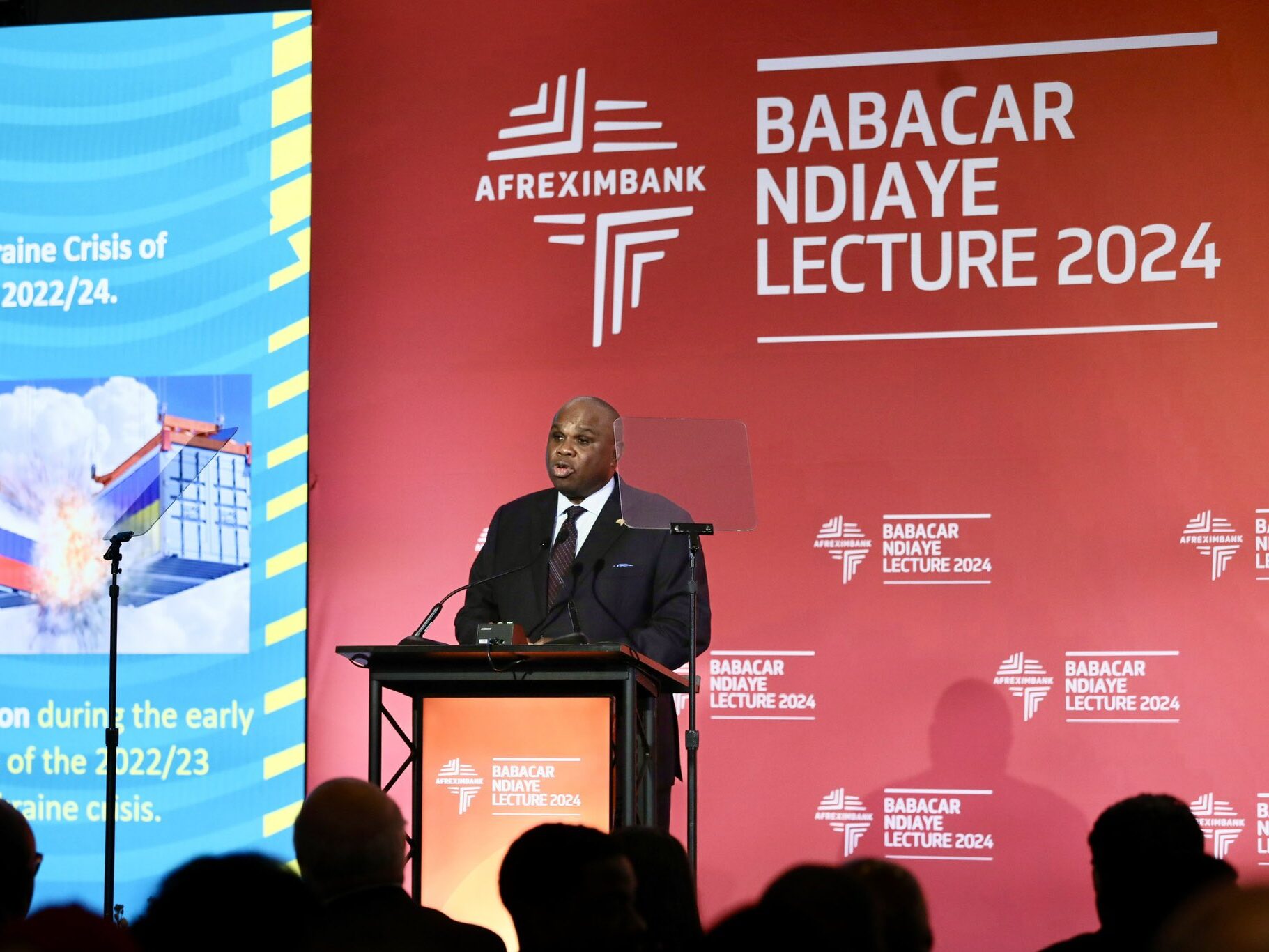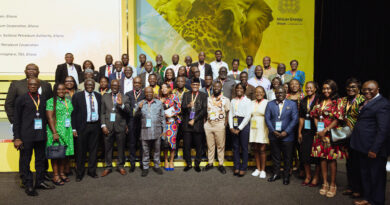Afreximbank: Collaborate to accelerate green energy transition in Africa.

The Keynote speaker at the eighth Babacar Ndiaye Lecture in Washington, D.C., Professor Yemi Osinbajo, spoke about the role of the AfCFTA in Addressing Africa’s climate Change and Development Challenges.
The eighth Babacar Ndiaye Lecture held at the Four Seasons Hotel in Washington D.C., on October 26, 2024, under-scored the need for African nations to strike a balance between short-term development imperatives and long-term climate goals.
The Babacar Ndiaye Lecture is an annual event designed to foster dialogue around Africa’s development challenges and explore practical solutions through policy, trade and diplomacy.
The Lecture honours Babacar Ndiaye, a former President of the African Development Bank, for his visionary leadership in advancing Africa’s economic growth.
Under the theme “Saving Lives Today versus Saving the Planet for the Future: Can the AfCFTA Resolve the Climate Change Dilemma?” discussions centred on how the African Continental Free Trade Area (AfCFTA), Africa’s most ambitious trade initiative, could serve as a vehicle for economic growth and environmental sustainability, positioning the continent as a leader in the global green transition.
The Lecture drew a distinguished audience of policymakers, academics, financial experts and climate advocates. Professor Yemi Osinbajo, the Immediate Past Vice President of Nigeria, delivered an address titled “Sustainable Infrastructure for Africa’s Future: Harnessing Innovation and Partnerships.”
He spoke about the advantages of the AfCFTA and its potential to transform Africa’s trade landscape, reduce carbon emissions and foster innovation in green industries. “There are two obvious advantages to a fully operational AfCFTA.
The first is that 42% of African countries, aside from North Africa, now have legislation prohibiting the export of raw ores or minerals before being processed.
This legislation gives African countries the benefit of jobs and revenues from local processing and manufacturing.
“The second advantage of the AfCFTA is that shipping is a major source of carbon emissions. Under current trade practices, a large share of African raw materials is exported to other regions, where they are processed or manufactured into finished products, usually using fossil fuel power sources, before being shipped back to Africa for consumption.
“This cycle contributes to higher emissions and constitutes a loss for African countries that do not reap the value chain gain from beneficiation. Intra-African trade in finished goods will substantially reduce this massive cause of global emissions,” he said.
The reduction of emissions by intra-African trade has been the subject of several empirical studies. Professor Osinbajo referred to a recent ECA/ CEPII study titled “Greening the African Continental Free Trade Area Agreement’s Implementation” published in December 2023, which found, inter alia, that implementing the AfCFTA can boost intra-African trade by 35% in 2045 while increasing GHG emissions by less than 1%, compared to no AfCFTA or climate policies.
These studies do not factor in using renewable energy sources in the processing and manufacturing of traded goods, an assumption of the Climate Positive Growth paradigm, which would again substantially reduce emissions.
He further said that “Most African countries depend on fossil fuels for their energy needs and for fossil fuel rich African countries, this is also a major source of export earnings and fiscal revenues. Ostensibly in keeping with their net zero obligations, there has been a growing trend amongst development finance institutions to withdraw from fossil fuel investment. Clearly, the implications of these actions are dire, where there are no immediate alternative sources of power and the cost of the transition to cleaner fuels may be prohibitive.”
Dr Rania Al-Mashat, Egypt’s Minister for Planning, Economic Development and International Co-operation said that while the “African continent is the least responsible for carbon emissions, it has the biggest burden in terms of financing climate change for developmental needs – such as food and water security, and access to energy.
She called for greater collaboration with national and international stakeholders “We need to work together; we need to bring the experiences from other places so that Africa can push forward with respect to development and sustainable economic growth.”
In her message, Amina J. Mohammed, Deputy Secretary-General of the United Nations and Chair of the United Nations Sustainable Development Group, spoke about the rapidly closing window to prevent the worst impacts of climate change. She addressed the fact that many African countries are mired in debt, exacerbated by extended crises with little access to long-term concessional financing to invest in sustainable development.
“With adequate access to financial resources at a reasonable cost, renewables can dramatically boost economies, grow new industries, create jobs and drive development, including by reaching the over 600 million Africans living without access to power,” said Ms Mohammed.
She also stressed the importance of prioritising inclusive policies that empower women and youth when building climate-resilient economies. “By harnessing the collective might of the AfCFTA, Africa can make strides in addressing both climate action and sustainable development by promoting regional integration and fostering green industrialisation. “The AfCFTA can help build climate-resilient economies while creating jobs, reducing poverty and strengthening food security.”
info@theenergyreview.com
Discover more from THE ENERGY REVIEW
Subscribe to get the latest posts sent to your email.


